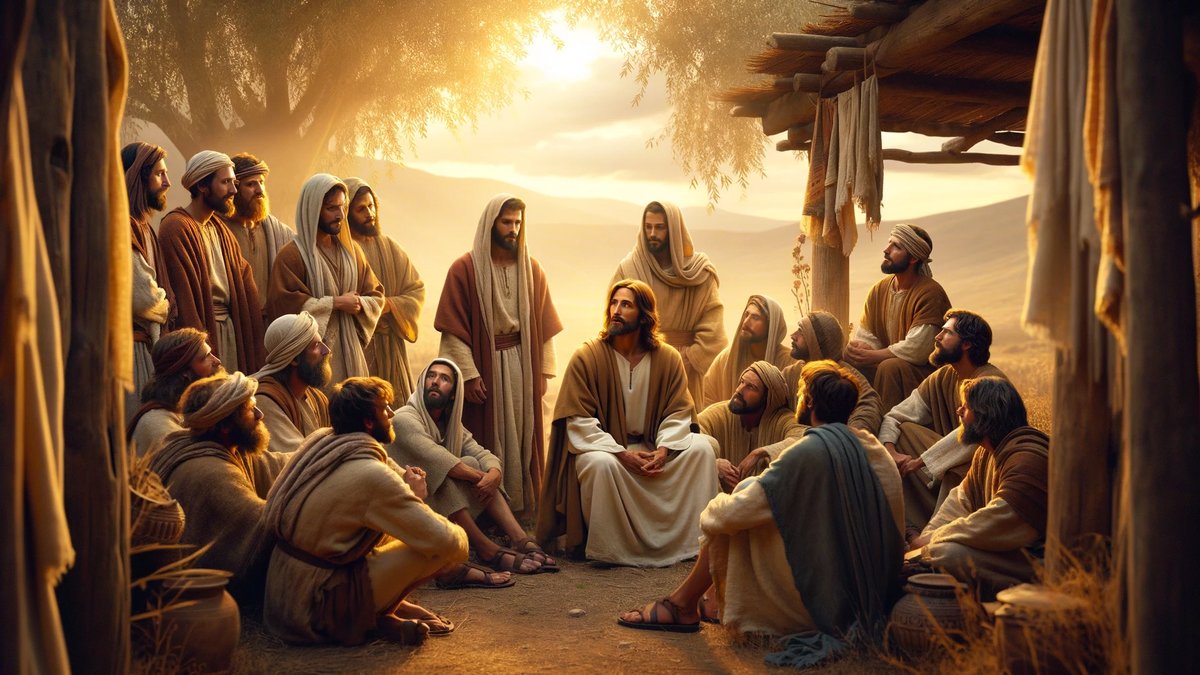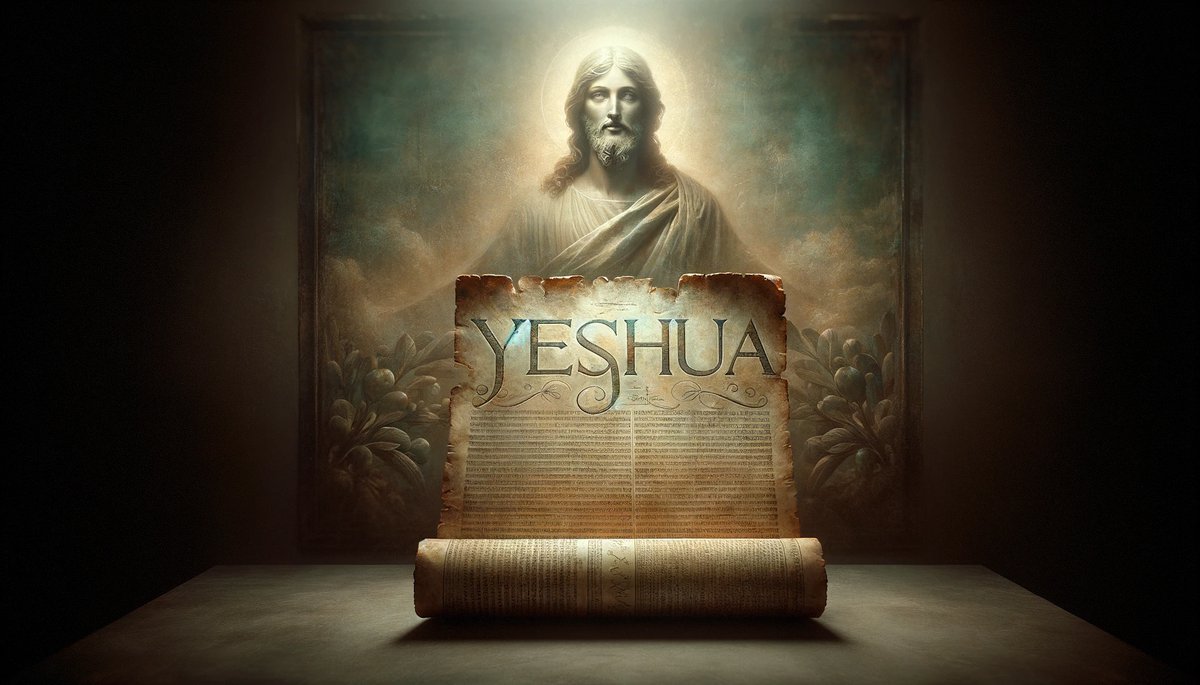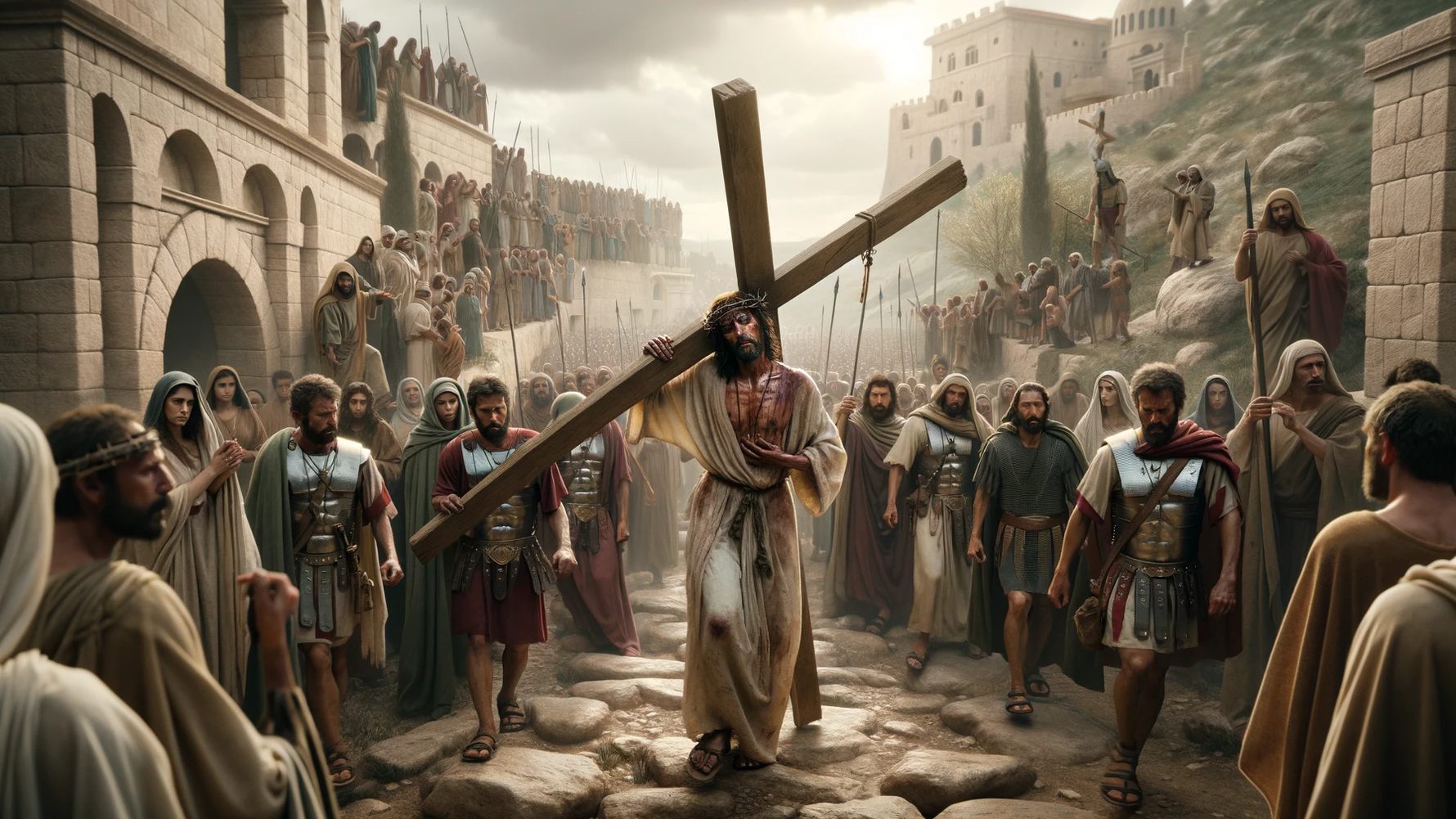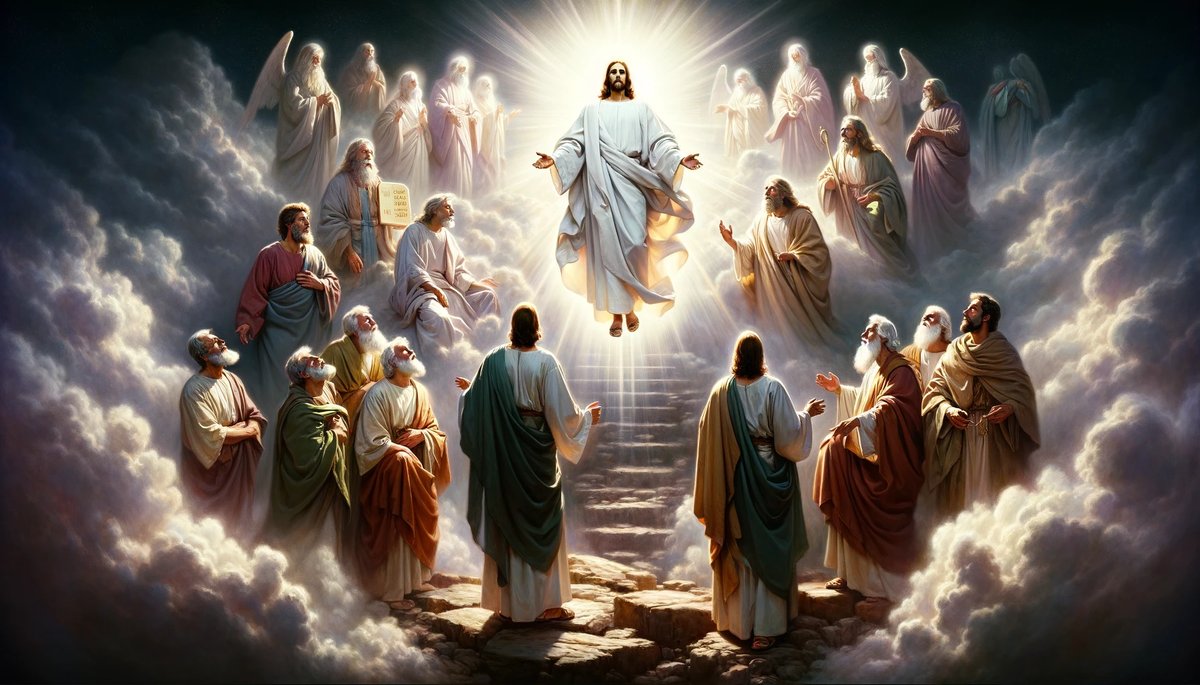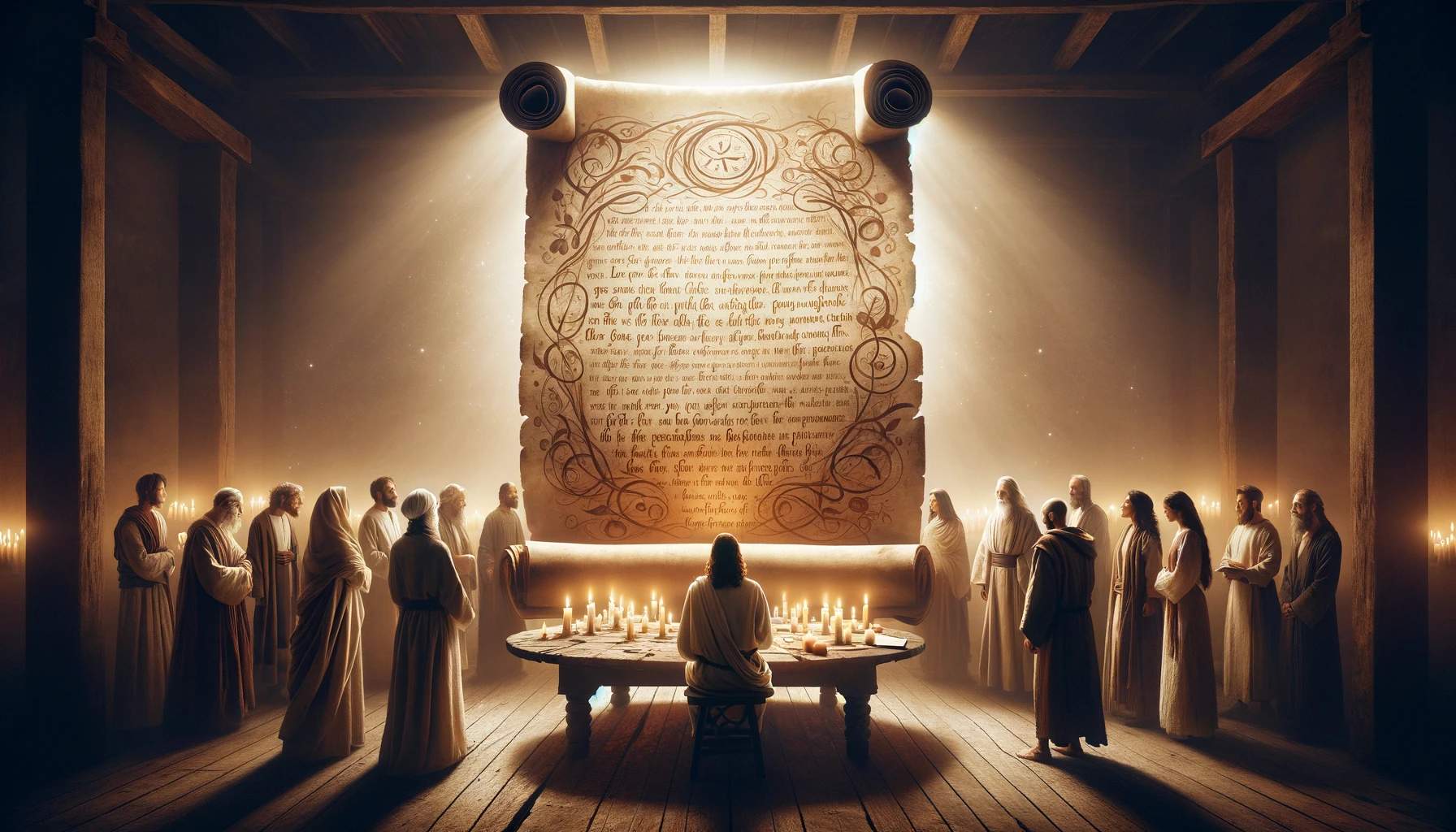Home>Christian Videos>Bible Stories>What Were The Charges Against Jesus Christ
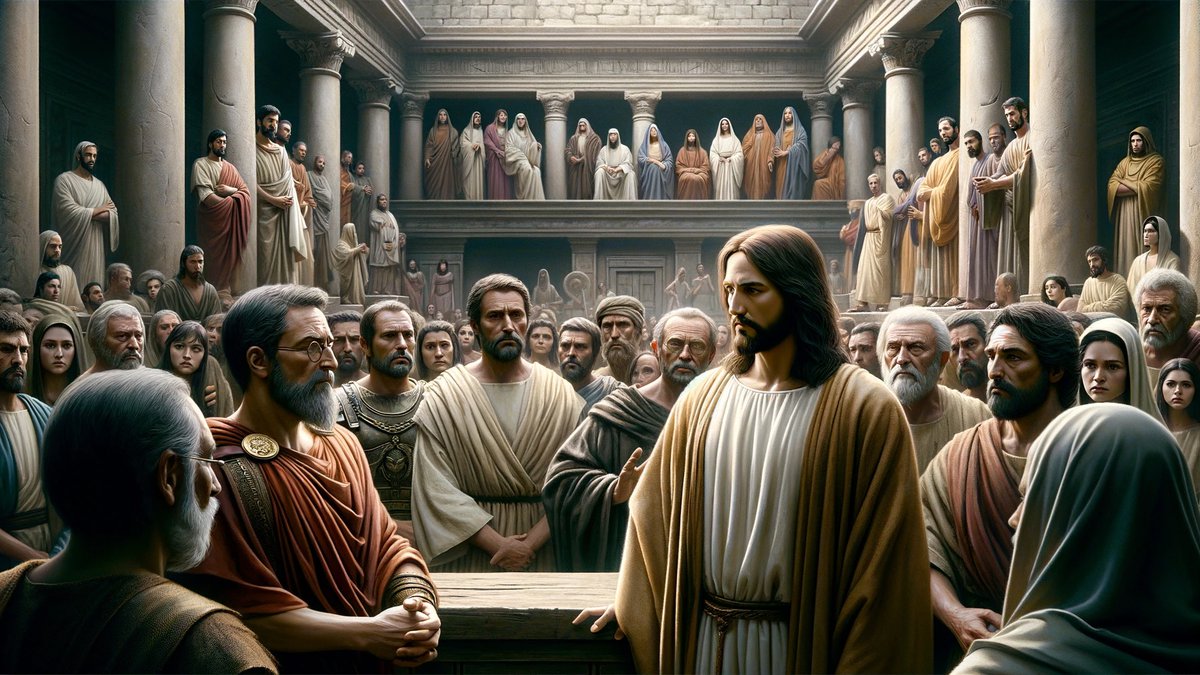

Bible Stories
What Were The Charges Against Jesus Christ
Published: March 1, 2024
Jason DeRose, Managing Editor at Christian.net, uses his expertise in religion and journalism to deepen understanding of faith's societal impacts. His editorial leadership, coupled with a strong academic background, enriches the platform’s diverse content, earning him recognition in both journalism and religious circles.
Discover the charges against Jesus Christ and delve into the biblical stories surrounding his trial and crucifixion. Explore the significance of these events in Christian faith and history.
(Many of the links in this article redirect to a specific reviewed product. Your purchase of these products through affiliate links helps to generate commission for Christian.net, at no extra cost. Learn more)
Table of Contents
The Accusations Made by the Jewish Leaders
The Jewish leaders accused Jesus Christ of several charges, which ultimately led to his crucifixion. These accusations were pivotal in the events that unfolded during the final days of Jesus' life. The charges brought against Jesus by the Jewish leaders were significant in shaping the narrative of his trial and crucifixion.
-
Blasphemy: The primary accusation leveled against Jesus by the Jewish leaders was blasphemy. They accused him of claiming to be the Son of God, which they considered to be a blasphemous assertion. In the eyes of the Jewish religious authorities, this claim was a direct affront to their understanding of monotheism and the exclusive worship of Yahweh.
-
False Prophecy: Another accusation made by the Jewish leaders was that Jesus had made false prophecies. They alleged that his teachings and predictions were misleading and contrary to the established prophetic traditions within Judaism. This accusation further fueled their opposition to Jesus and provided grounds for seeking his condemnation.
-
Violation of the Sabbath: The Jewish leaders also accused Jesus of violating the Sabbath. They contended that his actions, such as healing the sick on the Sabbath, were in direct violation of the Sabbath laws outlined in the Torah. This accusation reflected their concern with upholding religious observance and adherence to traditional customs.
-
Claim of Kingship: Additionally, the Jewish leaders accused Jesus of claiming kingship, which posed a threat to the authority of the Roman Empire. They feared that Jesus' assertion of being the King of the Jews could incite rebellion and challenge the rule of the Roman authorities, thereby jeopardizing the stability of the region.
The accusations made by the Jewish leaders against Jesus Christ were instrumental in shaping the course of events that led to his trial and crucifixion. These charges not only reflected the religious and political tensions of the time but also underscored the profound impact of Jesus' teachings and actions on the established religious and societal norms.
Read more: Who Were Jesus Christ’s Siblings
The Allegations Presented to Pontius Pilate
-
Violation of Roman Law: The Jewish leaders presented Jesus to Pontius Pilate, the Roman governor, with allegations of violating Roman law. They emphasized that Jesus' claim of kingship posed a threat to the authority of the Roman Empire, insinuating that he was fomenting rebellion against Roman rule. This accusation aimed to provoke the Roman authorities to take action against Jesus, leveraging the political implications of his purported claim to kingship.
-
Undermining Roman Authority: The Jewish leaders sought to persuade Pontius Pilate that Jesus' teachings and growing influence among the people posed a direct challenge to Roman authority in Judea. They portrayed Jesus as a potential instigator of unrest and sedition, highlighting the perceived threat he posed to the stability and control maintained by the Roman administration. By framing Jesus as a threat to Roman interests, the Jewish leaders aimed to secure Pilate's intervention in dealing with Jesus.
-
Claim of Kingship: Central to the allegations presented to Pontius Pilate was the accusation that Jesus claimed to be the King of the Jews. The Jewish leaders emphasized the political implications of this claim, asserting that it undermined the sovereignty of the Roman Empire in the region. They sought to portray Jesus as a subversive figure whose purported kingship posed a direct challenge to the authority of the Roman government, thereby urging Pilate to take decisive action against him.
-
Inciting Unrest: In their allegations to Pontius Pilate, the Jewish leaders depicted Jesus as a figure who incited unrest and dissent among the people. They highlighted instances where Jesus' teachings and actions had garnered significant support and following, portraying him as a potential catalyst for civil disturbance. By emphasizing the potential for social upheaval incited by Jesus, the Jewish leaders aimed to persuade Pilate to view Jesus as a threat to the Roman order and to intervene accordingly.
The allegations presented to Pontius Pilate by the Jewish leaders were strategically crafted to appeal to the Roman governor's concerns regarding political stability and the maintenance of Roman authority in Judea. These accusations sought to frame Jesus as a threat to both Jewish religious sensibilities and Roman political interests, ultimately influencing the course of the proceedings that led to Jesus' crucifixion.
The Charges Brought Before the Roman Authorities
-
Treason: The charges brought before the Roman authorities against Jesus Christ included the accusation of treason. The Jewish leaders portrayed Jesus as a threat to the Roman Empire by alleging that his claim of kingship undermined the authority of Caesar. This charge aimed to incite the Roman authorities to take decisive action against Jesus, framing him as a subversive figure whose purported kingship posed a direct challenge to the sovereignty of the Roman government in the region.
-
Disturbance of the Peace: Another charge leveled against Jesus before the Roman authorities was that of disturbing the peace. The Jewish leaders sought to depict Jesus as a source of potential unrest and civil disturbance, emphasizing instances where his teachings and actions had garnered significant support and following. By framing Jesus as a destabilizing force, the Jewish leaders aimed to persuade the Roman authorities to view him as a threat to the maintenance of order and to intervene accordingly.
-
Claim of Kingship: Central to the charges brought before the Roman authorities was the accusation that Jesus claimed to be the King of the Jews. This allegation was strategically crafted to appeal to the Roman sensibilities of maintaining control and authority in the region. The Jewish leaders emphasized the political implications of Jesus' claim, portraying it as a direct challenge to the sovereignty of the Roman Empire. This charge aimed to provoke the Roman authorities to take action against Jesus, leveraging the political implications of his purported claim to kingship.
-
Incitement to Rebellion: The Jewish leaders also sought to portray Jesus as an instigator of rebellion, alleging that his teachings and growing influence among the people posed a direct challenge to Roman authority in Judea. By emphasizing the potential for social upheaval incited by Jesus, the Jewish leaders aimed to persuade the Roman authorities to view him as a threat to the stability and control maintained by the Roman administration, thereby urging them to intervene decisively.
The charges brought before the Roman authorities were strategically designed to appeal to Roman concerns regarding political stability and the maintenance of authority in the region. These accusations sought to frame Jesus as a threat to both Jewish religious sensibilities and Roman political interests, ultimately influencing the course of the proceedings that led to his crucifixion.
The Basis for the Crucifixion of Jesus Christ
The crucifixion of Jesus Christ was based on a combination of religious, political, and social factors that converged to lead to his execution on the cross. The events leading to his crucifixion were shaped by a complex interplay of religious opposition, political maneuvering, and societal tensions, ultimately culminating in the decision to crucify Jesus. The basis for the crucifixion of Jesus Christ can be attributed to the following factors:
-
Religious Opposition: The religious leaders of the time, particularly the Jewish authorities, vehemently opposed Jesus and his teachings. They viewed his claims of divinity, his challenge to traditional religious practices, and his growing influence among the people as a threat to their authority and the established religious order. The accusations of blasphemy, false prophecy, and violation of the Sabbath were central to the religious opposition against Jesus, laying the groundwork for his eventual crucifixion.
-
Political Considerations: The political climate in Judea during Jesus' time was characterized by tension and unrest. The Jewish leaders strategically framed Jesus' claim of kingship as a challenge to Roman authority, seeking to provoke the Roman authorities to take action against him. The allegations presented to Pontius Pilate and the Roman authorities, including charges of treason, disturbance of the peace, and incitement to rebellion, underscored the political considerations that influenced the decision to crucify Jesus.
-
Social Unrest: Jesus' growing popularity and influence among the people stirred social and religious tensions. His teachings and actions had garnered significant support, leading to concerns among the religious and political elite about potential civil disturbance and upheaval. The portrayal of Jesus as a destabilizing force and an instigator of rebellion contributed to the social context that influenced the decision to pursue his crucifixion.
-
Roman Intervention: The involvement of the Roman authorities, particularly Pontius Pilate, in the proceedings against Jesus played a pivotal role in the decision to crucify him. The strategic presentation of allegations aimed at appealing to Roman concerns about maintaining control and authority in the region influenced the course of the trial and the eventual verdict of crucifixion.
The basis for the crucifixion of Jesus Christ was multifaceted, encompassing religious, political, and social dimensions that converged to shape the events leading to his execution. The culmination of religious opposition, political maneuvering, social unrest, and Roman intervention ultimately resulted in the crucifixion of Jesus, marking a pivotal moment in religious history with profound theological significance.

